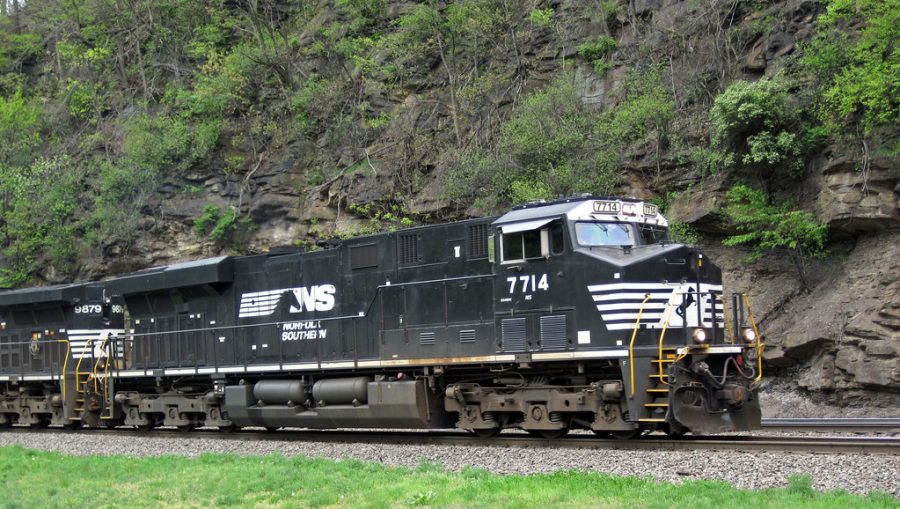Opinion: The most important story of the year so far
The train derailment disaster in East Palestine, Ohio could have repercussions on the area’s environment for years to come despite positive first reports
A Norfolk Southern train derailed on the outskirts of small town East Palestine, Ohio. Photo courtesy James St. John/Flickr.
On Feb. 3, a Norfolk Southern freight train carrying vinyl chloride and numerous other hazardous chemicals derailed in the small town of East Palestine, Ohio. Derailing on the outskirts of the town located on the Ohio-Pennsylvania border, the train reportedly traveled for 20 miles while the axles were on fire.
What happened next is a shocking example of how corporate greed can often lead to cataclysmic disasters that affect the lives of thousands.
After the train derailed, Ohio state officials ordered the evacuation of the town’s residents and subsequently, a “controlled release” of the contents within five of the train cars that were derailed in fears that they would explode. Crews unloaded the vinyl chloride into a trough and then ignited the contents, causing a massive plume of smoke and fire to shoot up into the sky.
In the aftermath, one hazmat experts’ statement has prompted much concern.
Sil Caggiano, a former fire battalion chief for the Youngstown, Ohio Fire Department and a hazardous materials specialist, spoke with local CBS affiliate station WKBN 27 and warned of the harmful effects we may see in the future.
“We basically nuked a town with chemicals so we could get a railroad open,” said Caggiano.
Caggiano also expressed worry about officials allowing people back into their homes just days after the disaster, telling residents they should be aware of hazardous chemicals seeping into their homes. Caggiano also advised residents who returned to East Palestine, Ohio to keep track of their health in case of any possible health complications arising in the coming years as a result of the disaster.
“There’s a lot of what ifs, and we’re going to be looking at this thing five, ten, fifteen, twenty years down the line and wondering, ‘Gee, cancer clusters could pop up, you know, well water could go bad,” he said.
The train derailment was also exempted from being classified as “high-hazard” despite it carrying chemicals that otherwise would require much more strict regulations.
What should be highlighted more about this disaster is that it was preventable. It only happened because of the willful negligence on the part of the rail industry and the weak regulatory agencies who continue to choose profit over public safety.
Rail Workers United’s (RWU) analysis of the situation states, “the immediate cause of the wreck appears to have been a nineteenth-century style mechanical failure of the axle on one of the cars—an overheated bearing—leading to derailment and then jackknifing tumbling cars.”
The disaster that came to the people of East Palestine came not long after railroad workers across the country attempted to strike for more sick days, only for their efforts to be crushed by the Biden administration. The railroad industry, historically one of the most important sectors of the U.S. economy, and still to this day a crucial part of our nation’s infrastructure, must treat its workers fairly, otherwise we will continue to see disasters of this nature.
So far this year, more than a dozen trains have derailed across the country, according to a report from Newsweek. On Thursday, another Norfolk Southern train derailed just 30 miles west of Detroit in Van Buren, Michigan. The train was also carrying hazardous materials, however none of the cars carrying those materials were derailed, according to Michigan state officials.
Still, the lasting image of the towering smoke cloud in East Palestine informs us of the dangerous possibility that the greed of rail industry bosses could result in catastrophic accidents. Like many problems in this country, some of us may not be aware of this issue before it’s too late.



